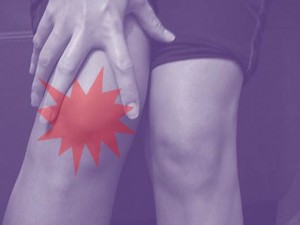Continued Knee Pain after Knee Replacement?
Knee replacement pain? TW is a middle aged physician who was enrolled in one of our studies 2 years ago. This study required us to take synovial fluid from one of her knees and to culture those cells for re-injection to try and treat her knee arthritis. Regrettably, despite multiple tries, she was one of the few patients where we weren’t able to get fluid, so she dropped out of the study. Figuring like most of us that a knee replacement, while a big surgery, would be her ultimate solution she went that route. Regrettably, I just saw her in clinic this week and at 18 months out from her knee replacement she still has significant knee pain. How is this possible? If you take out the knee and the knee was causing pain, then the pain should go away, right? Not so fast. Research shows that more than 1 in 10 patients after knee replacement had chronic pain in the knee cap area. A more recent study found out that a whopping 44% of patients continued to experience post-op pain 3-4 years after the knee was replaced! Why? One of the most common causes (and likely at play in this patient) is that the knee pain was never primarily orginating from the knee, but a pinched nerve in the low back. The upshot? Chronic pain in the knee even after the knee has been replaced is surprisingly common. Our next steps with this patient will be to take a much closer look at her low back issues.

If you have questions or comments about this blog post, please email us at [email protected]
NOTE: This blog post provides general information to help the reader better understand regenerative medicine, musculoskeletal health, and related subjects. All content provided in this blog, website, or any linked materials, including text, graphics, images, patient profiles, outcomes, and information, are not intended and should not be considered or used as a substitute for medical advice, diagnosis, or treatment. Please always consult with a professional and certified healthcare provider to discuss if a treatment is right for you.
